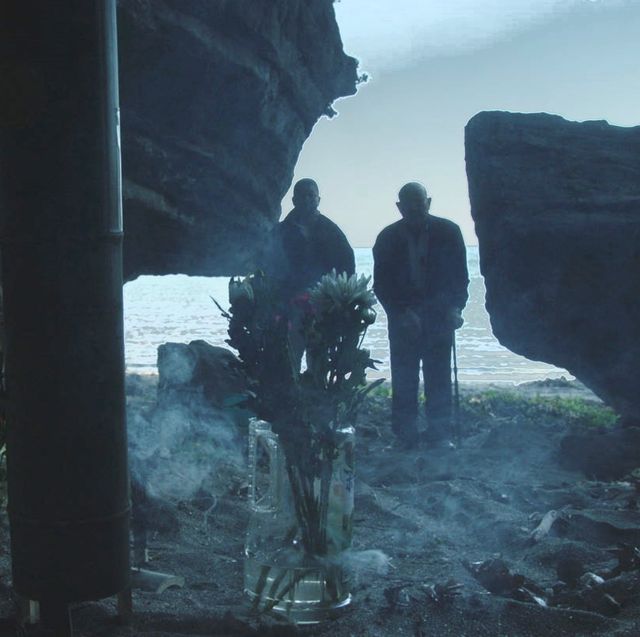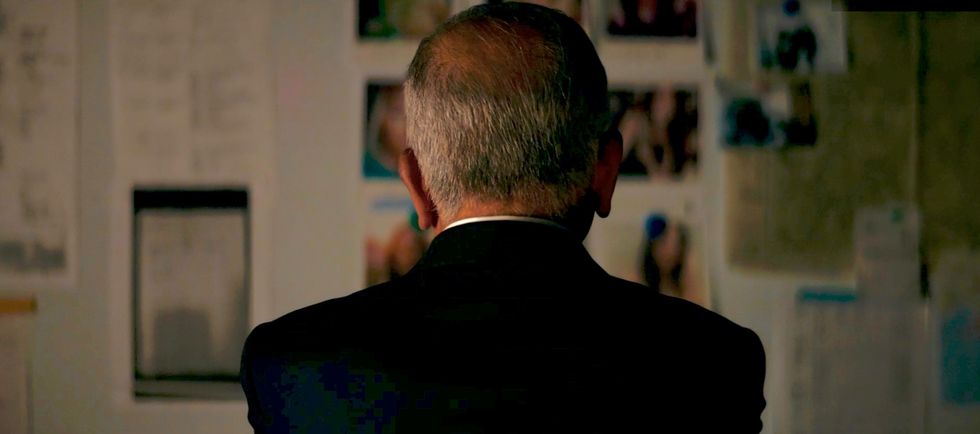It should have been a dream trip: two 21-year-old friends from the UK moved over to Tokyo for a gap year to work and live in one of the most exciting cities in the world. But less than a month later, one of the women, Lucie Blackman, went missing.
Her distraught family flew to Japan on a desperate search to find their daughter and sister, and one of the biggest manhunts in the country’s history began. Sadly, her body was found seven months later: she had been raped and murdered, and her body had been mutilated and dumped in a shallow grave.
The shocking and tragic case is being re-examined again by Netflix in a documentary titled Missing: The Lucie Blackman Case. The film interviews a series of Japanese detectives who were on the case, who detail their work on the investigation, and focuses on Blackman’s father, who held onto the hope that his daughter would finally be found alive.
But after they discover Blackman’s horrific murder, it leads the police into the dark underbelly of the criminal world of Tokyo, and how it exposed the man who carried out this brutal attack as one of the country’s worst and most prolific sexual predators. So who was he, and what happened to Blackman?
The backstory
Back in May 2000, Lucie Blackman, from Sevenoaks in Kent, was 21 and working as an airline stewardess when she decided to move to Japan with her friend, Louise Phillips. The pair got a job as hostesses in the Casablanca bar, in Roppongi, Tokyo.
While the hostesses in the club are expected to sit and entertain the men in their club, and encourage them to drink, occasionally they will be asked to leave the bar and go on a date with one of the clients.
The disappearance
Three weeks later on July 1, Phillips realised Blackman hadn't been in contact after a date with a man the night before. A day later on July 2, Phillips received a strange call from a man claiming that Blackman has joined a cult and saying that she would not see her friend again – Phillips then raised the alarm with Blackman’s family.
A few days later, Blackman’s sister, Sophie and her dad, Tim, flew out to Japan to hold a press conference to ask for information as to Blackman’s whereabouts. Around 30,000 missing person posters were distributed around Tokyo and a £9,500 reward – later upped to £100,000 by an unnamed businessman – was offered for her safe return.
At first, the Japanese authorities suggested Blackman might have run off with a new boyfriend, but after the UK’s Foreign Secretary, Robin Cook, put pressure on them, they began their investigations. The Blackman family also met with the then-PM, Tony Blair, and asked him to raise the case with the Japanese prime minister.
A letter claiming to be from Blackman saying “I am doing what I want and I want to be left alone” was dismissed as a fake, and a lead with a Japanese businessman who was later found dead in his apartment also failed to take the police any closer to the truth.
It was then that they landed on the name of Joji Obara, a Korean-Japanese property developer. He was questioned, and while he admitted to meeting her and having drinks in an apartment with her, he denied any other involvement with her.
The arrest
As a result of the publicity surrounding the case, three women came forward to describe waking up sore and sick in Obara's bed, with no memory of the night before. Several of them had reported him to Roppongi police, but were ignored.
The police now had enough to charge him and as the chief suspect, with drugging, raping and killing Blackman, as well as raping eight other women and the manslaughter of the Australian model Carita Ridgway, who had also been working as a hostess in the bars of Tokyo.
Seven months later, on February 9, 2001, using sniffer dogs and ground-imaging radar, detectives found the remains of Blackman close to one of Obara’s properties.
The court case
54-year-old Obara’s court case started in October 2002, and went on for almost five years. It wasn’t until April 2007 that there was a verdict. He was found guilty of raping nine other women, including the manslaughter of Ridgway, but cleared of raping and murdering Blackman, as the prosecutor could not produce any forensic evidence linking Obara to her death.
The BBC reported at the time: “The judge said there was no proof Obara alone was responsible for the death of Miss Blackman… it was clear the victim and the accused were together before she vanished and then died but he said this was not enough to secure a conviction.”
Blackman’s mother, Jane Steare, said: “I'm heartbroken. I just can't believe this. My worst fears have come true.”
Obara was sentenced to life imprisonment, however in an appeal case in 2008, the Tokyo High Court ruled that Obara was guilty of the abduction, dismemberment and disposal of Blackman's body. He had an appeal rejected in December 2010, and remains in prison to this day.
Missing: The Lucie Blackman Case is available to watch on Netflix from July 26















